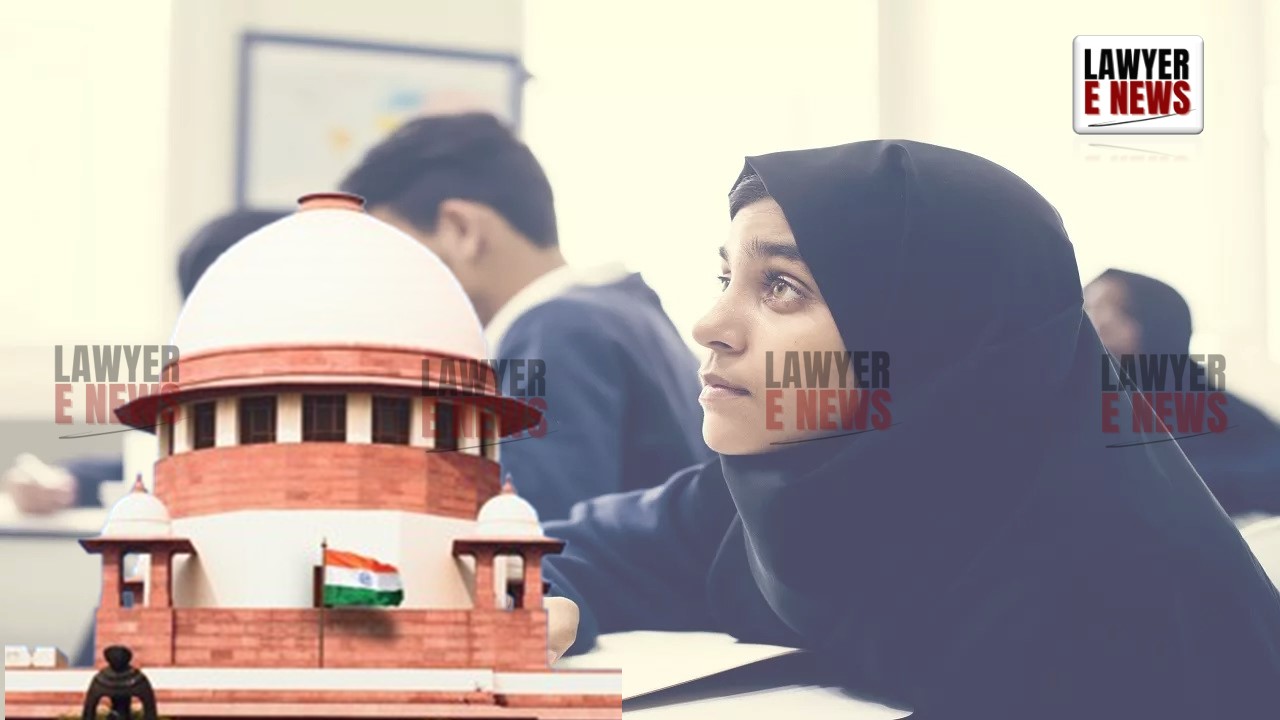-
by Admin
15 February 2026 5:35 AM



On November 5, the Supreme Court upheld the Uttar Pradesh Board of Madarsa Education Act, 2004, affirming its constitutionality and overturning an earlier Allahabad High Court decision that invalidated the Act on secularism grounds. In its ruling, the Supreme Court clarified that a statute cannot be struck down for allegedly violating the Constitution’s basic structure unless it contravenes fundamental rights under Part III or legislative competence.
The Supreme Court criticized the Allahabad High Court’s rationale for invalidating the Act on secularism grounds, stating:
“The constitutional validity of a statute cannot be challenged merely on the grounds of basic structure violation.”
The Court specified that for any law to be struck down on secularism principles, it must directly contravene specific constitutional provisions on secularism. The bench, comprising Chief Justice DY Chandrachud, Justice JB Pardiwala, and Justice Manoj Misra, emphasized that the High Court’s view mistakenly overextended the application of the basic structure doctrine.
While upholding most of the Act, the Supreme Court deemed certain provisions unconstitutional where they overlap with higher education regulations, particularly concerning fazil and kamil degrees. The Court found these provisions encroached on the University Grants Commission (UGC) Act, governed by Entry 66 of List I, a domain reserved for the central government.
The Act’s purpose in regulating educational standards in Madarsas aligns with the state's duty to ensure that students achieve competency levels that enable societal participation and financial independence.
The Supreme Court affirmed that Article 21A (Right to Education) and the Right to Education (RTE) Act must align with the right of minorities to manage their educational institutions. The state Board, with government oversight, can establish standards for secular education in Madarsas without undermining their minority character.
The Court recognized the Act as within the legislative power of the state under Entry 25 of the Concurrent List, which pertains to education. However, higher education regulation under the Act, such as for fazil and kamil degrees, remains beyond state jurisdiction as it conflicts with central authority under Entry 66 of List I.
The Court found that the Madarsa Act balanced the needs of the minority community by setting educational standards, conducting examinations, and issuing certificates, thereby enabling students to access higher education opportunities. While recognizing the religious component in Madarsa education, the Court affirmed that its primary purpose remains educational.
“Religious instruction in a state-recognized institution cannot compel participation,” the Court emphasized, reaffirming that while Madarsas may teach religious principles, this does not inherently challenge legislative competence on education.
The Supreme Court heard arguments from petitioners including Anjum Kadari and the Managers Association Madaris Arabiya, who argued that the High Court misunderstood the Act’s purpose, interpreting it as solely religious rather than as a regulatory framework for Muslim students’ education. Senior Advocates Dr. AM Singhvi, Mukul Rohatgi, PS Patwalia, and others appeared for the petitioners, arguing for the Act’s secular intent.
In opposition, the National Commission for Protection of Child Rights (NCPCR) and other intervenors contended that Madarsa education must not substitute mainstream education guaranteed under Article 21A. The Supreme Court had stayed the High Court’s ruling in April, signaling early on that it viewed the High Court’s approach as misconstrued.
The Allahabad High Court, in its March 22 ruling, had deemed the Act unconstitutional, suggesting it violated secularism by promoting religious education. The High Court also directed the UP government to develop a transition plan for Madarsa students to enter formal education. The Supreme Court, however, saw the Act as a permissible regulation of education rather than a violation of secularism, especially where it aligns with the state’s role in ensuring educational standards.
Anjum Kadari & Anr. v. Union of India & Others,
Managers Association Madaris Arabiya UP v. Union of India
